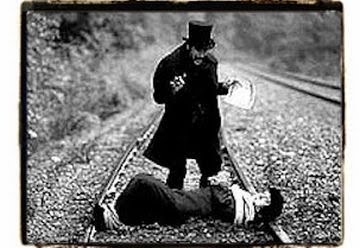
Not to pick on “Abner Doubleday,” whose very successful series of fantasy novels I am now plodding through: but since I’ve given him the protection of a pseudonym, I suppose I can say what must be said. Like, if I don’t say it, my head will explode.
As I trudge into Book Two, I find Abner has drifted into the habit of constantly editorializing about his characters. It’s a very annoying habit.
Now, I think he’s writing this badly on purpose, creating as it were a comic book without pictures, pitched to an audience of mis-educated 10-year-olds. He writes like he’s afraid the reader won’t be able to tell the good guys from the bad guys. He already has his villains doing exceedingly cruel and villainous things, on page after page, and also bragging about how villainous they are. You’d think that would be enough, but no–he has to throw in adjectives like “diabolical,” “greedy,” “sadistic,” etc.
His good guys fare no better. If I were a fictional character, one of the heroes inhabiting a long story about grim events leading inexorably to total disaster, I would take strong exception to being described as “feisty,” “perky,” or even, Heaven help us, “spunky.” Abner would have to keep me stapled to the page; otherwise I would escape from the book and take up another line of work.
This stuff was stale a hundred years ago. This is the stuff that makes silent movies laughable today. When Snidely Whiplash ties Little Nell to the railroad tracks, and then leers and snickers at the camera, we think it’s hilarious.
Well, Abner’s novels aren’t meant to be hilarious. If his fantasy world had railroads in it, his villains would for sure be tying sweet, defenseless maidens to the tracks. In small doses, this would be amusing. In great big novel-sized doses, it’s more than flesh and blood can bear.